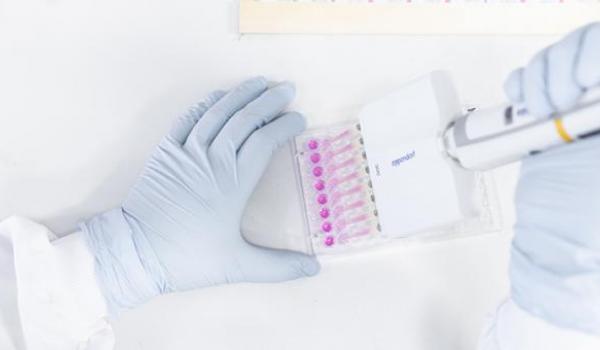Our new project will find new ways to treat low grade serous ovarian cancer. Because this type of ovarian cancer affects a smaller group of women than other types (around 700 women each year in the UK) much less research has been done on it. Target Ovarian Cancer is changing that.
The project will be led by Professor Charlie Gourley, one of the world’s foremost ovarian cancer researchers, at the University of Edinburgh. It will build on the work of a landmark clinical trial in recurrent low grade serous ovarian cancer known as the LOGS trial, led by Professor Gourley and colleagues from the US. Patients in this trial receiving a drug called trametinib (MEKINIST®) experienced a substantially improved response compared with standard chemotherapy treatment. It even reduced the chance of the cancer coming back again. It is hoped that the results from the LOGS trial could lead to trametinib becoming a new, targeted treatment for women with low-grade serous ovarian cancer.
How will our new project build on positive results from the clinical trial?
Currently, women with low grade serous ovarian cancer are treated with chemotherapy, but their tumours are more resistant to this standard treatment compared to the most common type of ovarian cancer, high grade serous ovarian cancer. Few other treatment options exist and therefore there is an urgent need to develop new approaches.
The LOGS trial showed that trametinib works. Our new research will continue to find even more crucial new treatments for low grade serous ovarian cancer. Not only will the team in Edinburgh look at a range of treatments that could be effective in treating it, we will also identify how individuals may respond to treatment. We’ll end up with more effective treatments, targeted to the specific type of tumour that each person has.
What is the intended outcome of this research?
In our new project, Professor Gourley’s team will analyse tumour samples and data collected from the LOGS trial, combining this with information from hundreds of other patients, to understand low grade serous ovarian cancer better. In short, the research will:
- find new treatment options by looking at the effectiveness of existing drugs on low-grade ovarian cancer – drugs that are already used to treat other cancers and conditions. This is called repurposing or repositioning drugs.
- understand which patients are more likely to respond to trametinib and who may benefit from other treatments.
- get a better understanding of the genetic changes that contribute to this type of ovarian cancer
- identify women who might be at highest risk of their cancer coming back (recurrence).
Professor Charlie Gourley said:
I’m proud to be leading this research into low grade serous ovarian cancer, in order to improve outcomes for women living with this disease. This research wouldn’t be possible without Target Ovarian Cancer’s UK-wide funding programme, and I’m really pleased to be working with them on a project that will further enhance the output from a groundbreaking trial in a less common subtype. We know so little about the biology of low grade serous ovarian cancer, and this research will help improve our understanding of how to find the best treatment for each patient.
Annwen Jones OBE, Chief Executive of Target Ovarian Cancer, said:
Target Ovarian Cancer funds the best projects in the UK through our unique national research programme. We can only do this thanks to our generous fundraisers and supporters. There is an urgent need for more effective treatments for low grade serous ovarian cancer and we are proud to be addressing this challenge with our new project led by world-class researchers in Scotland. It will advance our understanding of low grade serous ovarian cancer and its genetics, leading to the development of much-needed new treatments.
Diane Evans-Wood from Southampton has recurrent low-grade serous ovarian cancer, and campaigns for more recognition for this subtype of the disease. She said
I have been living with this disease since 2015 and have at times been frustrated that it’s treated the same as other types of ovarian cancer, when we know that it behaves so differently. I greatly welcome research focusing solely on low grade serous ovarian cancer because it will acknowledge those differences. Sometimes it isn’t necessary to start from scratch, but to build on what we already know about the disease and genetics and use that to find new ways to treat it. It will give people like me hope for better treatments in future.



